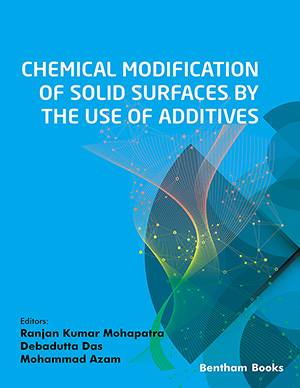Abstract
The effect of the modification of H-ZSM-5-based catalysts by chemical liquid deposition of tetraethyl orthosilicate, application of colloidal silica binder, and impregnation of magnesium oxide on para-selective disproportionation of toluene was studied. Catalysts, with two levels of silylation (11.5 wt.% and 34.6 wt.%), with and without the presence of magnesium oxide (1.82 wt.%) were prepared, characterized and evaluated in a fixed-bed flow reactor in the temperature range of 350-425 oC under hydrogen (30 bar) with a contact time of 0.67 h. Results show that p-xylene selectivity increased from 22.1 % for unsilylated H-ZSM-5 catalyst (C-1) to 54.3% for the high-silylated catalyst (C-2) and 44.6% for the low-silylated catalyst (C-3). The xylenes yield decreased from 8.7 mol.% for C-1 to 2.1 mol.% for C-2 and 6.4 mol.% for C-3. The observed effects are attributed to narrowing of the zeolitic channels by silylation, which increased the diffusional resistance for m- and o-isomers of xylenes. The influence of magnesium oxide incorporation was found to depend on the level of silylation. The p-xylene selectivity was enhanced by loading of magnesium on C-2 while there was almost no influence on C-3. On the other hand, the p-xylene yield was significantly enhanced by loading of magnesium on C-3 while there was almost no influence on C-2. Secondary reactions were enhanced by magnesium loading, which suggests that the interaction of magnesium with alumina on the surface alters the acidic nature and hence the catalytic properties. Simultaneous modification of H-ZSM-5 by low-level silylation and magnesium oxide incorporation resulted in substantial enhancement of the p-xylene selectivity as well as its yield.
Keywords: silylation, chemical liquid deposition, toluene disproportionation, H-ZSM-5, Mg loading, xylene, p-xylene.










